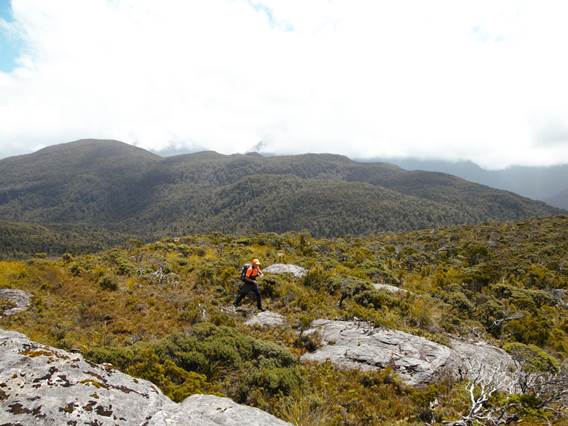For further information contact:
Tsehai Tiffin - Real Journeys Corporate Communications Manager
Mobile: +64 21 523 899
Email: [email protected]


Over fifty predators removed from Cooper Island in Dusky Sound, Fiordland
Date: 25 January 2018
Media Release
Birds on Cooper Island will breathe a little easier after 24 stoats and 29 rats were killed and removed from remote Dusky Sound, in the first two rounds of full coastal trap checks completed as part of the Cooper Island Restoration Project.
The project is a partnership between the Department of Conservation (DOC) and Southern tourism operator Real Journeys. Real Journeys is funding the removal of predators from Cooper Island (the first time it has been carried out on the island) as its contribution to DOC’s larger Dusky Sound Restoration Project. Cooper Island is the third largest island in Dusky Sound.
Real Journeys Chief Executive, Richard Lauder says it will take at least four years to get the predators under control which is a half million-dollar commitment for the company. He says Real Journeys has been bringing visitors to the area for decades as part of its multi-day Discovery Expeditions and has always been committed to playing a significant part in its conservation.
“It’s a big bit of remote, rugged land – 18 square kilometres. It’s the place where kākāpō last bred and we’d love to see kākāpō back there. That takes a bit of effort but we think we can achieve it, so that’s what we’re setting out to do,” says Richard.
“It’s a big bit of remote, rugged land – 18 square kilometres. It’s the place where kākāpō last bred and we’d love to see kākāpō back there. That takes a bit of effort but we think we can achieve it, so that’s what we’re setting out to do,” says Richard.
Richard Lauder, Chief Executive, Real Journeys
Two Real Journeys nature guides conducted the trap checks on this month’s expedition, emptying and re-baiting almost 200 double DOC-200 stoat traps that were installed in May last year. Twelve stoats and 11 rats were caught in the first knockdown phase in August and 12 stoats and 18 rats were caught this time. At the same time, two Department of Conservation contractors, flagged the best route for almost 200 more stoat traps to be laid inland. Next year and the year after, 1000 self-resetting Goodnature rat traps will be laid across the whole island.
Lindsay Wilson, DOC’s Te Anau Biodiversity Ranger, says Cooper Island is particularly significant because it is the only island in Dusky Sound that is known to have had kākāpō breeding on it and still has lots of rimu fruit that the kākāpō would have depended on. He says the extent of the predator control work that started last year, could not have been achieved without the sponsorship of Real Journeys.
“We see that these islands can become lifeboats for a variety of these really rare and threatened species which we can then hopefully get back onto the mainland later on. In terms of the whole predator free New Zealand concept it’s a really important place as a stepping stone going from small islands to big islands, peninsulas – mainland,” says Lindsay.
Lindsay says Cooper Island and the whole Dusky Sound Restoration Project will be an opportunity to demonstrate what is possible for the rest of mainland New Zealand.
As featured on TVOne News and TV3 Newshub.
For more information about the Cooper Island Restoration Project visit: www.realjourneys.co.nz/cooperisland
